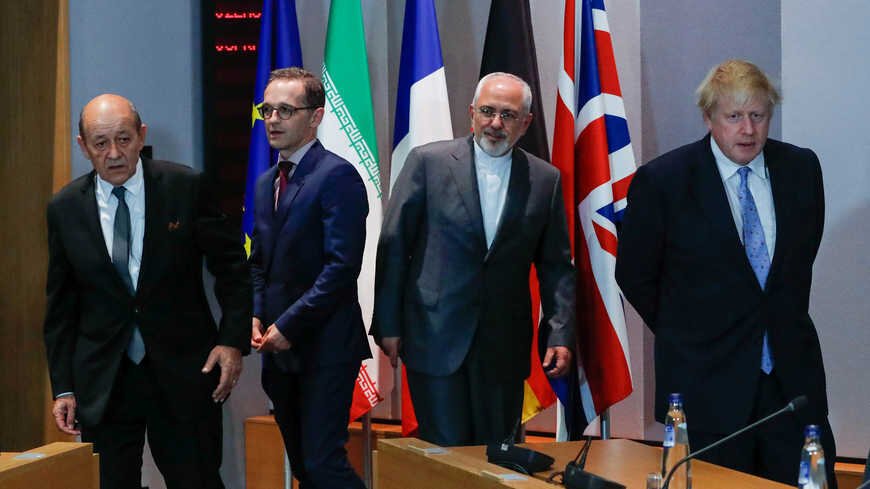TEHRAN - As the U.S. push to reinstate all UN sanctions on Iran reaches a critical point, analysts tell the Tehran Times that the U.S. move to snap back UN sanctions on Iran will likely face strong opposition from the international community.
According to a Reuters report, in a bid to muster support for the U.S. efforts to trigger a snapback of UN sanctions on Iran, Secretary of State Mike Pompeo will likely travel to New York on Thursday to meet with the UN officials including UN Secretary-General Antonio Guterres and Indonesia’s UN Ambassador Dian Triansyah Djani, the Security Council president for August.
Pompeo is also expected to submit a complaint to the UN Security Council about what the U.S. calls Iran’s non-compliance with the 2015 nuclear deal, which is officially known as the Joint Comprehensive Plan of Action (JCPOA). On Friday, the U.S. put forward a resolution calling for the extension of a UN arms embargo on Iran but the Security Council rejected the resolution. With the failure of the resolution, the U.S. is now poised to initiate the highly controversial process of triggering a return of all UN sanctions on Iran.
While the U.S. claims it has the legal authority to trigger the snapback process as defined in the UN Security Council, the EU has announced that the U.S. has no legal right to trigger the snapback of UN sanctions because it withdrew from the JCPOA.
“Given that the US unilaterally withdrew from the JCPOA in May 2018 and has not participated in any JCPOA structures or activities subsequently, the US cannot be considered as a JCPOA participant. We therefore consider that the US is not in a position to resort to mechanisms reserved for JCPOA participants (such as the so-called snapback),” the DPA news agency quoted a spokeswoman for EU foreign policy chief Josep Borrell as saying on Sunday.
With the U.S. insisting on the triggering of the snapback process, the European signatories to the JCPOA -France, Germany, and the UK (E3) - seem to be caught in the middle between Iran and the U.S., analysts told the Tehran Times.
If the U.S. notifies the Security Council of Iran’s “non-compliance”, the Council would then have 30 days to solve the issue. Some experts believe that the E3 can stop the U.S. efforts to re-impose the UN sanctions by building consensus among countries on the Security Council, and if the UN sanctions reinstated, the Europeans can mitigate the effects of sanctions.
“The Europeans can save JCPOA. They can prevent the Security Council from holding a session on Iran or refuse to participate in the session. They also can convince their allies to refrain from taking part in the session. Furthermore, if the U.S. succeeds in reinstating the UN sanctions on Iran, the Europeans can refrain from implementing the sanctions,” Hassan Beheshtipour, an expert on Iran’s nuclear program, told the Tehran Times.
The Europeans didn’t say what they will do if the U.S. re-imposes the UN sanctions on Iran. However, Beheshtipour believes that the U.S. will fail to achieve its goals even if it succeeds in slapping the international sanctions because other countries, including the E3, would not cooperate with the U.S.
“The U.S. could trigger the snapback through a complicated process at the Security Council. However, it will not get the desired result, which is the return of the Security Council’s previous resolutions, because it doesn’t coordinate with other countries. The implementation of the resolutions is contingent on the cooperation of other countries such as Germany, Russia, the UK, France, and China with the U.S. These countries won’t implement the resolutions because they disagree with the U.S. on the reinstatement of the UN sanctions,” Beheshtipour argued, adding that “if the U.S. reinstates the UN sanctions, countries opposing unilateralism won't implement them.”
Some experts hold the belief that the U.S. push to reinstate the UN sanctions could create a situation rarer than hens' teeth, with some countries around the world refraining from implementing the UN Security Council’s resolutions while others implement them.
Fowad Izadi, a professor of American studies at the University of Tehran, previously told the Tehran Times that a U.S. move to snap back the UN sanctions on Iran would divide the world into two blocs: some countries would be obliged to follow the U.S. while others could ignore the U.S. pressure.
“We know that the United States doesn’t follow international law and they use different instruments that they have to engage in illegal activities. So the end result is going to be some countries follow the U.S. dictates because they have no other choice, and some countries are going to be more independent and able to withstand the U.S. pressure,” the professor said.
Whether the E3 withstand the U.S. pressures remains an open question. But if the U.S. administration follows through on its promise to force the return of UN sanctions on Iran, the E3 could soon find themselves standing at a crossroads in their policy toward Iran. If they choose the U.S., they may lose JCPOA. And if they choose to preserve the JCPOA, they could risk deepening the schism between the two sides of the Atlantic Ocean. It remains to be seen which choice the E3 would make.
It seems that the Europeans are giving up on their efforts to preserve the nuclear deal because they think the U.S. is hell-bent on dismantling the deal. European diplomatic sources told the Asharq Al Awsat newspaper that the E3 has not yet found the means to ward off what they consider as an "imminent danger", a threat to U.S.-European relations, and a weakening of the authority of the Security Council.
According to the European sources, the goal of Donald Trump and his administration is to "embarrass Iran and force it out" of the JCPOA.


No comments:
Post a Comment